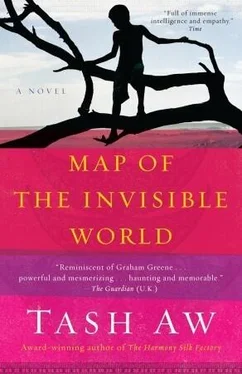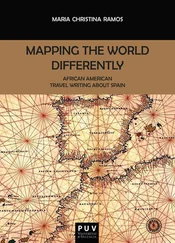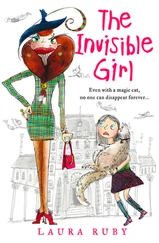Tash Aw - Map of the Invisible World
Здесь есть возможность читать онлайн «Tash Aw - Map of the Invisible World» — ознакомительный отрывок электронной книги совершенно бесплатно, а после прочтения отрывка купить полную версию. В некоторых случаях можно слушать аудио, скачать через торрент в формате fb2 и присутствует краткое содержание. Год выпуска: 2010, Издательство: Spiegel & Grau, Жанр: Современная проза, на английском языке. Описание произведения, (предисловие) а так же отзывы посетителей доступны на портале библиотеки ЛибКат.
- Название:Map of the Invisible World
- Автор:
- Издательство:Spiegel & Grau
- Жанр:
- Год:2010
- ISBN:нет данных
- Рейтинг книги:4 / 5. Голосов: 1
-
Избранное:Добавить в избранное
- Отзывы:
-
Ваша оценка:
- 80
- 1
- 2
- 3
- 4
- 5
Map of the Invisible World: краткое содержание, описание и аннотация
Предлагаем к чтению аннотацию, описание, краткое содержание или предисловие (зависит от того, что написал сам автор книги «Map of the Invisible World»). Если вы не нашли необходимую информацию о книге — напишите в комментариях, мы постараемся отыскать её.
comes an enthralling novel that evokes an exotic yet turbulent place and time—1960s Indonesia during President Sukarno’s drive to purge the country of its colonial past. A page-turning story,
follows the journeys of two brothers and an American woman who are indelibly marked by the past — and swept up in the tides of history.
Map of the Invisible World — читать онлайн ознакомительный отрывок
Ниже представлен текст книги, разбитый по страницам. Система сохранения места последней прочитанной страницы, позволяет с удобством читать онлайн бесплатно книгу «Map of the Invisible World», без необходимости каждый раз заново искать на чём Вы остановились. Поставьте закладку, и сможете в любой момент перейти на страницу, на которой закончили чтение.
Интервал:
Закладка:
Adam thought of the sounds and images that came to him from time to time. Din was right; everything made sense. It was as if all his life he had been standing in a room lit by electric lamps and suddenly someone had thrown open the windows and let in daylight. “I must be a freak,” he said.
“Not at all. There are plenty of case studies that document the same thing. For example, I once went to a village in Sulawesi. I had a scholarship then and it was part of my so-called research — ha! Anyway, in this village there had been a bloody war between Muslims and Christians a generation before, but now the sons and daughters of the people who had butchered one another were living side by side again. The only way they could do this was by blocking out the pain. But wait, this is the weird part. There was hardly any noise in this village, no loud voices or arguments or laughter. Everyone walked about in a daze, as if they were daydreaming. It was as if their whole beings were devoted to suppressing their memories. Their brains had erased too much.”
“I’m not that bad, am I?” Adam said, trying to laugh. “I’m not a zombie.”
“No, of course not. We all suffer from it in one way or another. Erasing memories in this semiconscious way goes on everywhere, on a national scale, with culture — everything. We Asians are very good at it. If there’s a drought that kills hundreds of thousands, or an earthquake, or the government fires on demonstrators — well, we just forget it and move on. It lingers in our psyche, but we never let it come to the surface. It just stays buried deep inside. When I lived in Europe I saw that Westerners remember everything — they commemorate bad things that happened to them. It was the only thing I liked about the West.”
Adam thought about Karl, who never spoke about his past. He had always buried the things that had happened to him — good and bad alike. So it was not true that all Europeans commemorated everything; but at least they remembered them. Adam was sure even Karl remembered.
“What you’re saying is that I need to find my brother,” said Adam.
“What I’m saying is that you need to find your past, your real past. If that means finding your brother, then, yes, you must. Because to be ignorant of one’s true history is to live in a void. It’s as if you’re floating aimlessly in the sea, being dragged every which way by currents and waves. You get pulled under water: There’s nothing there. No people, no trees, no air to breathe. It’s another world, a place your body occupies but where you don’t really exist. So what’s the problem? you ask. You’re here, aren’t you? As long as you’re not dead, it’s okay. Well, look around you, look at those babies sitting by the road, staring into space. Life has just begun for them and already it is empty. Is that really better than death? Do you think they’re poor but happy? Those kids back there, begging, selling their bodies for a few rupiah —they don’t know what their history is. Our history. We are not a country that was made for this. This” —Din raised his hand and brought it down in one violent chopping motion, as if cleaving an invisible foe in two—“is what we get when we don’t know our past. We cannot claim our future. That is the problem. You can never go forward.” They walked past two toddlers playing in a shallow puddle of muddy water, splashing each other’s naked bodies with gray mud.
“You’re right,” said Adam.
Din began to whistle the keroncong tune again. He looked pensive, as if mulling over something that had just occurred to him. After a while he said, “Don’t worry, I will help you find your brother. You must reclaim your past. I promise I will help you, Adam.”
“And you,” Adam said, “do you know what your past is?”
Din continued whistling, his hands tucked comfortably in his pockets. “Actually, I do.” He seemed calm again, and smiled at Adam. “That is why I know where our future lies.”
They reached a row of flimsy houses. Two old men sat on a wooden bench; on the dirt before them they had laid out a few things for sale: a carton of Winstons and a few bottles of honey-colored benzene. They nodded at Din, their sun-scarred faces livened for an instant by faint smiles. Din stopped in front of a sheet of zinc; pasted onto it were old advertisements for soft drinks and cigarettes, flaking away in the heat to reveal layers of even older posters. It was only when Din began to undo a heavy padlock that Adam realized that the collage of posters was a door to a shack so dilapidated it seemed to disappear into the shadows of the houses that flanked it. There was a flutter of tiny wings; nesting swifts, disturbed from their peaceful roosts, escaped from the deep gloom through the holes in the roof. Pools of light made nearly white circles on the dirt floor, but nonetheless it took Adam a few moments to make out what was in the shed: stacks of timber, damp and edged with crinkly mold; old worn tires piled up at the far end of the long, narrow space; a few bicycle frames hanging from the walls, stripped of their wheels, chains, and pedals, like skeletons of a strange creature. Din unfurled a length of tarpaulin and began to remove planks of wood; all the while he continued to whistle the same bright melody they had heard earlier, and it made Adam think of Perdo, of his house with its solid floors and solid roof that had no holes in it. He began to feel a sudden welling up of the bitter sickness that he had become all too familiar with in recent days.
“Come help me,” Din said, tugging at a thick length of timber and sliding it toward Adam. It was rotting and splintered, and when Adam touched it he had to resist the urge to recoil from it. Together they moved all the wood until they had cleared a space, and it was then that Adam noticed an old tin chest that must once have been used to transport tea or spices from island to island. When Din opened it, Adam saw a tangle of wires and a few jars of pale yellow liquid, heaped together with some metal rods, an empty Bintang bottle (with part of its label scratched off), a child’s doll with Western features, and other things that Adam did not recognize. It looked like a fisherman’s net cast carelessly across a wash of flotsam.
Din delved into the contents of the chest and emerged with a canvas satchel that he slung immediately over his shoulders so that the strap sat across his chest, the small pouch resting safely against his hip. He put a hand on it, adjusting it minutely, as though reacquainting himself with something old and familiar and comforting. “Good,” he said, and smiled; he was standing on the edge of a column of sunlight that flooded in through the patched roof; the light caught the side of his face, harshly illuminating half his smile while leaving the rest in the shadows. He held up the old bottle of Bintang. “A souvenir,” he said. “The only time in my life I ever got drunk. I’d just arrived back from Holland. I was angry — I’d given up so many things to pursue a dream far away, and suddenly I was back home again with nothing. No ‘Doctor’ before my name, just plain old Din, no different from one hundred million people around me. All I had was the last of my guilders in my pocket. I went to a Chinese place in Glodok and drank five bottles of beer, one after another. I’d never touched alcohol before. I can remember the streets feeling very long and uncertain as I made my way home; in the becak I felt as if I were slipping downstream in a boat on a big, muddy river, like the Musi that I remembered from my childhood. I didn’t feel happy, but I wasn’t depressed either. It was just this feeling of in-betweenness, where it seems everything’s possible yet you can’t control anything. One day you might experience it, but I hope not. It was frustrating. Even when I fell asleep, I wasn’t really asleep. I closed my eyes and I could still see the ceiling spinning. When I woke up I felt the worst I have ever felt, as if my body had been poisoned and rotted to the bone. I swore I would never drink alcohol again, and I never have. I keep the bottle to remind me of what I did.” He was staring intently at the bottle as though he had been addressing it rather than Adam and was now waiting for it to respond.
Читать дальшеИнтервал:
Закладка:
Похожие книги на «Map of the Invisible World»
Представляем Вашему вниманию похожие книги на «Map of the Invisible World» списком для выбора. Мы отобрали схожую по названию и смыслу литературу в надежде предоставить читателям больше вариантов отыскать новые, интересные, ещё непрочитанные произведения.
Обсуждение, отзывы о книге «Map of the Invisible World» и просто собственные мнения читателей. Оставьте ваши комментарии, напишите, что Вы думаете о произведении, его смысле или главных героях. Укажите что конкретно понравилось, а что нет, и почему Вы так считаете.












